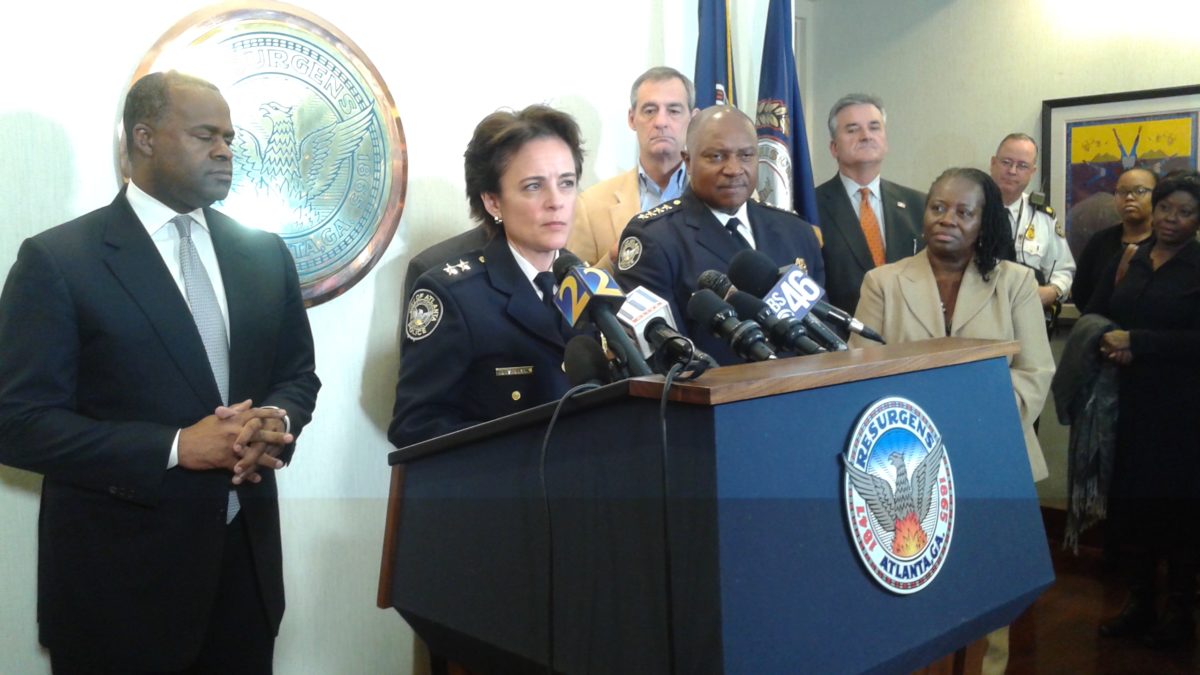Atlanta Police Chief: Marijuana Still Illegal Under New Ordinance

Atlanta Police Chief Erika Shields, shown last year, said marijuana remains illegal in Georgia, and the ordinance approved Monday by the Atlanta City Council addresses only the penalties associated with marijuana offenses.
Tasnim Shamma / WABE
A new Atlanta ordinance eliminating jail time and reducing penalties for having small amounts of marijuana will allow officers to focus on eliminating violent crimes instead of petty ones, the city’s police chief said.
Marijuana remains illegal in Georgia, and the ordinance addresses only the penalties associated with marijuana offenses, Atlanta Police Chief Erika Shields told WSB-TV.
The Atlanta City Council on Monday approved the ordinance that reduces the fine for possession of an ounce or less of pot from up to $1,000 to a maximum of $75.
But there’s been some confusion about the change, Shields told The Atlanta Journal-Constitution.
“In the weeks leading up to this, there has been all this emphasis on decriminalization and legalization, and that is not what the ordinance is,” Shields said. “The ordinance is not written requiring anything different of law enforcement. The ordinance strictly deals with the city courts and municipal court and their fine process.”
Atlanta’s move comes as cities and states across the nation have either reduced penalties for possession of small amounts of the drug or made it legal, the Atlanta newspaper reported.
In 2016, the DeKalb County city of Clarkston approved lowered fines and eliminated jail time on possession of an ounce or less in 2016. Like Atlanta, possession of marijuana remains illegal in Clarkston.
Atlanta City Councilman Kwanza Hall, who sponsored the new ordinance, acknowledged that the drug remains against the law. But he said the legislation creates a punishment that is more in line with what he sees as a very minor infraction.
“Georgia law does not allow us to legalize marijuana possession,” said Hall, who is running for mayor.
What the ordinance will do is “help lessen the impact on about 1,000 people every year who are booked into our jail on marijuana-only arrests,” Hall said.








